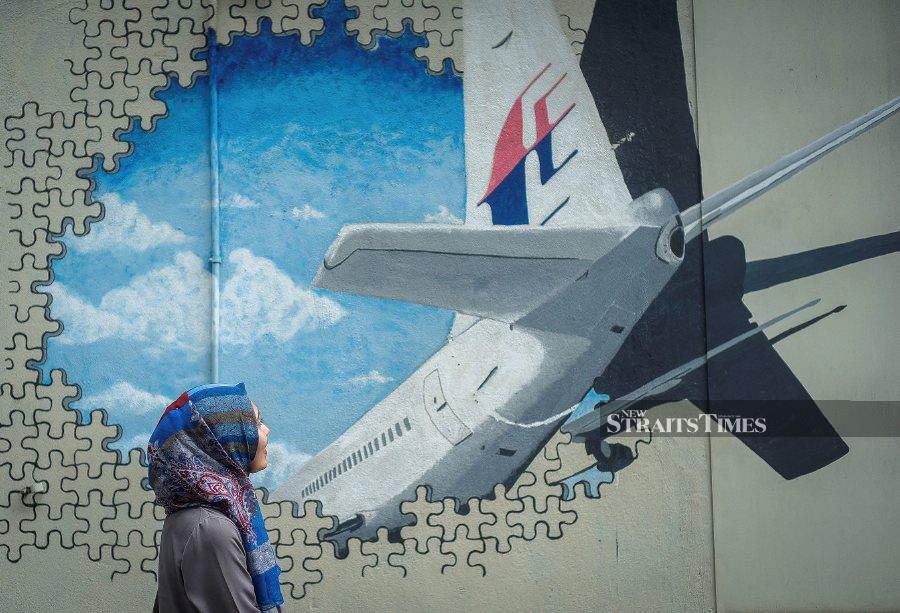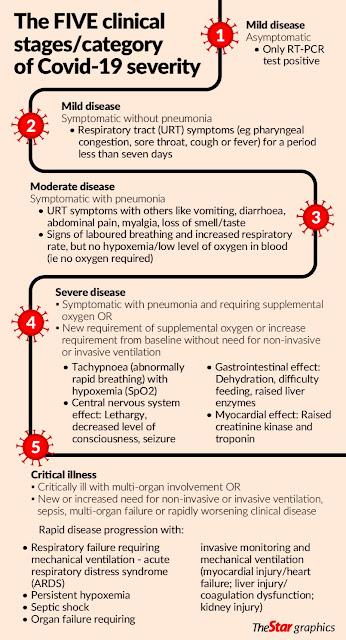https://youtu.be/vcn5Lxshw20
US multilateralism is coming back in many areas but in trade, many retrograde policies of the past are continuing.
AFTER the end of the Trump presidency in January, multilateralists around the world heaved a collective sigh of relief.
Gone would be the wrecking ball aimed at international institutions.
Gone would be the go-it-alone approach to dealing with global problems. Gone would be policies towards the rest of the world premised on “America First”.
Gone, hopefully, would be the capricious trade wars, some of them directed at American allies.
To a large extent, these high hopes have proved justified.
Within its first 40 days, the Biden administration has reversed many of its predecessor’s disengagements from multilateral institutions and processes.
It has rejoined the Paris Agreement on climate change, which the United States had abandoned in 2017.
It walked back to former president Donald Trump’s decision to withdraw from the World Health Organisation (WHO), which was due to take effect from July 6.
It has pledged US$4bil (RM16bil) for the WHO-sponsored Covax initiative which aims to distribute Covid-19 vaccines to the developing world, which the Trump administration refused to join.
It has agreed to endorse an allocation of special drawing rights – the International Monetary Fund’s hard currency – which would provide additional resources to poor countries without adding to their debt, and which former Treasury secretary Steve Mnuchin had declined to support.
Given that the World Bank is the world’s biggest financier of climate change-related investments, its president David Malpass reasonably expects that the Biden administration, for which battling climate change is a priority, will be supportive of its mission.
The administration has also vowed the US’ “unshakeable” commitment to Nato, which Trump had derided as an outdated organisation that imposes excessive burdens on the US.
But there is one critical area where the Biden administration is hesitant to support multilateralism, and that is trade.
Here, multilateralists can be grateful for some small mercies.
At least the administration has affirmed its commitment to the World Trade Organisation (WTO) – the custodian and enforcer of world trade rules – which the Trump administration all but ignored during the last four years and even threatened to leave.
It has also broken the impasse over WTO’s leadership, by endorsing the candidacy of Nigerian-American economist Ngozi Okonjo-Iweala for the post of directorgeneral, which was supported by the majority of the WTO’s 164 members, but which the Trump administration had blocked.
So, after being leaderless for almost six months, the WTO now at least has someone in charge.
Modest ambitions
But beyond that, and judging by actions rather than words, the multilateralist ambitions of the Biden administration on trade appear modest.
It has made clear that it will not pursue any trade agreements until it restores America’s competitiveness by investing trillions of dollars in areas such as energy, education and infrastructure.
It has endorsed “Buy American” policies, which would favour domestic producers and would be blatantly illegal under WTO rules.
Citing “systemic problems”, it has continued the Trump administration’s policy of blocking appointments of new judges to the WTO’s appellate body, which functions as a “supreme court” that adjudicates trade disputes.
The body has been unable to issue any judgments since Dec 11, 2019, because it did not have the minimum of three members required to issue a ruling.
Currently, with all judges having completed their terms, there is not a single judge on the body. This means that any appeal against a judgment by a lower panel at the WTO disappears into legal limbo, and the judgment is not binding.
In September last year, a lower panel ruled in favour of China, which made the case that the 25% tariffs levied by the US in June and September 2018 violated the WTO’s cardinal principle of non-discrimination.
The US is appealing that judgment, but the appeal cannot be heard, as the US would know, so the tariffs will remain in place.
Indeed, the Biden administration appears in no hurry to lift the Trump administration’s tariffs on China, all of which are likely to be WTO-illegal, according to trade experts.
It wants to use these tariffs as leverage to secure concessions from Beijing, including its compliance with the phase one trade deal negotiated by the Trump administration under which China was supposed to buy US$ 200 bil worth of US goods and services split over last year and this year, but is falling short of the target.
It has also continued the Trump administration’s policy of designating Hong Kong’s exports as “Made in China”, citing “national security” concerns – which means that in the US view, that issue, too, cannot be adjudicated by the WTO.
In short, a return to multilateralism on trade does not seem to be a priority for the Biden administration.
‘Elephant in the room’
The rise of China is one of the main sources of this reticence.
Like the Republicans, Democrats believe that the WTO is not fit for purpose in dealing with all of China’s alleged trade malpractices.
The case for this is well articulated in a 2016 paper by Harvard Law School Prof Mark Wu, now a senior adviser to the US Trade Representative’s office.
He argues that the main problem is that WTO rules – which were crafted before China joined the organisation – were not made with China’s distinctive economic system in mind.
WTO rules can address only those among China’s trade malpractices which are shared by other countries – such as requiring foreign investors to partner with local firms and buy from local suppliers, or granting exclusive rights to local firms to import or sell goods in the local market – which are practices that are not unique to China, and for which case law already exists.
But problems arise in cases where the boundaries between state and private enterprises are blurred, as is often the case in China. It is then not easy to judge whether a preferential transaction is of a private commercial nature – which falls outside the WTO rules – or amounts to a state subsidy.
At the heart of the problem is what constitutes a “public body”, which in China is not as clear as in other countries.
It is widely accepted, including by WTO itself, that WTO rules need to be updated, not only relating to China but also to issues such as digital trade, competition, services, labour and the environment.
But China, which is involved in the majority of trade disputes involving major economic powers, is the “elephant in the room”.
However, updating the rules should not mean sidelining the WTO in the meantime, which is what seems to be happening.
In a departure from the unilateral approach taken by the Trump administration, the Biden administration says it plans to deal with China’s trade practices in concert with other countries.
But there is no better way to do this than in a multilateral forum like the WTO, which applies a core set of principles to trade disputes such as non-discrimination, has mechanisms to monitor and enforce its rules and which would accommodate the concerns of multiple countries, which is how multilateralism should work.
Besides, China has a good record of complying with WTO rulings that go against it, and not such a good record of caving in to bilateral pressures.
Judicial paralysis
Shutting down the WTO’s judicial function by effectively neutralising its appellate body is especially ill advised.
Some concerns about the way the body functions and its alleged “judicial overreach” may be legitimate, but even if so, this applies only to a minority of cases that the body has adjudicated.
Disabling the WTO’s appellate body prevents the majority of cases, including those unrelated to China, from being resolved.
Besides, for all the criticisms levelled against it, the appellate body has a proud record.
In its 25 years of operation, it has resolved 195 disputes compared with around 160 cases completed in 74 years by the International Court of Justice, with 15 standing judges. Moreover, it has disposed of cases within a few months on average, compared with a few years in the case of other international adjudicating bodies.
Recounting these achievements in her farewell speech on Nov 30 last year, the last appellate judge to finish her term, Dr Zhao Hong, pointed out: “Though there was room to improve, the appellate body distinguishes itself for its outstanding performance among all international adjudicating bodies.”
By continuing to paralyse its functioning, the Biden administration undermines multilateralism and perpetuates the law of the jungle on trade issues, where might is right.
So while the administration has made a good start by re-embracing multilateralism in many areas, its trade policies still leave much to be desired.
-By VIKRAM KHANNA— The Straits Times/ANN
Diplomatic realpolitik
AS double-think runs wild in the White House, Crown Prince Mohammad bin Salman (MBS) of Saudi Arabia must be enjoying a quiet chuckle. Diplomatic realpolitik has been accorded precedence over the severe action that was expected of President Joe Biden in the context of the US intelligence report that the Crown Prince was complicit in the ghastly killing of dissident journalist Jamal Khashoggi at the Saudi consulate in Istanbul in October 2018.
The Washington Post columnist was allegedly drugged and his body dismembered. Every tenet of human rights was thus violated.
By advancing what they call a “free pass” to MBS, America’s President has proffered a feeble excuse to justify his defence of the de facto leader of the desert kingdom. Biden, who had referred to Saudi Arabia as a “pariah kingdom with no redeeming social value” in course of his election campaign, has now softened his stance to a dramatic degree.
It thus comes about that in the somewhat surprising reckoning of the US President, the price of directly penalising Saudi Arabia’s crown prince is “too high”.
He may be right when viewed through the prism of certitudes of foreign policy.
The US President was reportedly convinced by his newly formed national security team that there was no way to formally bar the Saudi crown prince from entering the United States or to take a call on the criminal charges against him.
Altogether, it was feared by the current US administration that a drastic reprisal would have breached the equation with one of America’s key Arab allies, not to discount the flutter within the Arab region generally.
There is said to have been a consensus in the White House that the price of that breach was quite “simply too high” in terms of Saudi cooperation in the fight against terrorism and in confronting Iran.
Biden had been urged by a section of the establishment to at least impose the same travel restrictions against the Crown Prince as the Trump administration had imposed on others involved in the plot.
The White House appears to have drawn a fine distinction between MBS and the Saudi military. While the Crown Prince is unlikely to be invited to the United States in the immediate perspective, the establishment has denied that the Saudi ruler is being given a “pass”.
It is pretty obvious though, that the coveted International Visitor Program (IVP) will not be denied to the Saudi Arabian Crown Prince. Going by the terms of protocol, he may yet be treated as a state guest in America.-Reuter
Related posts
Trump-Washington disorder drags world down, lost humanity's fight for survival against climate change
The world at a T-junction
America’s 5 Stages of Grief Over China’s Rise; Trump and wife test positive for Covid-19
The hegemonic anxiety of America First











